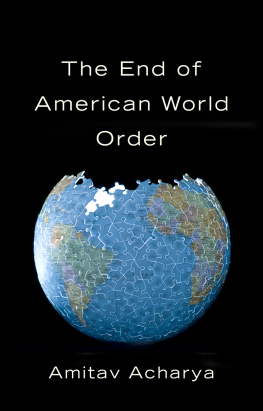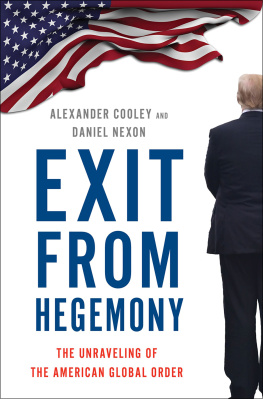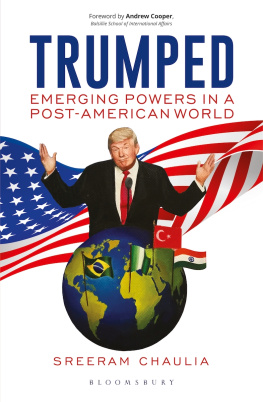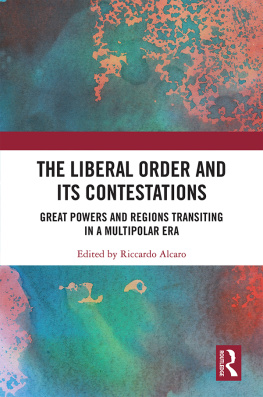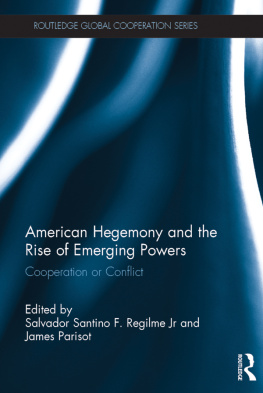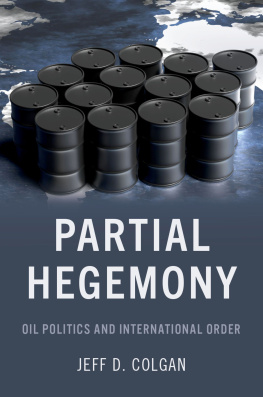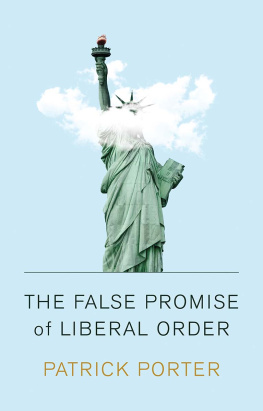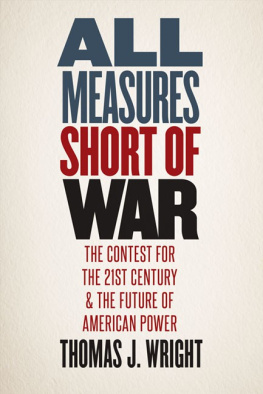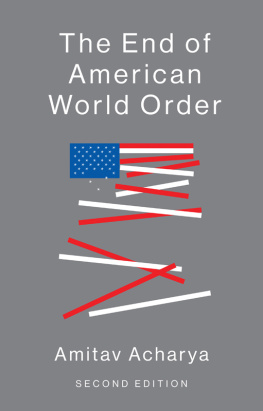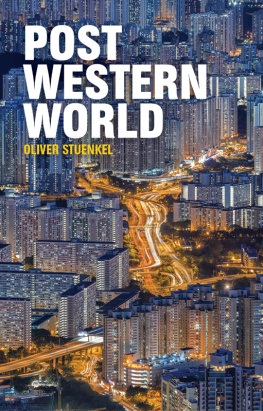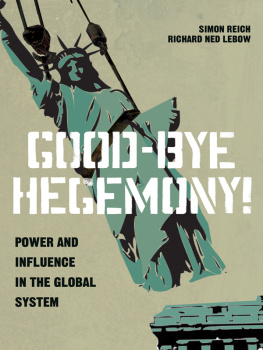
Table of Contents
Copyright Amitav Acharya 2014
The right of Amitav Acharya to be identified as Author of this Work has been asserted in accordance with the UK Copyright, Designs and Patents Act 1988.
First published in 2014 by Polity Press
Polity Press
65 Bridge Street
Cambridge CB2 1UR, UK
Polity Press
350 Main Street
Malden, MA 02148, USA
All rights reserved. Except for the quotation of short passages for the purpose of criticism and review, no part of this publication may be reproduced, stored in a retrieval system, or transmitted, in any form or by any means, electronic, mechanical, photocopying, recording or otherwise, without the prior permission of the publisher.
ISBN-13: 978-0-7456-7247-2
ISBN-13: 978-0-7456-7248-9 (pb)
ISBN-13: 978-0-7456-8465-9 (epub)
ISBN-13: 978-0-7456-8464-2 (mobi)
A catalogue record for this book is available from the British Library.
The publisher has used its best endeavours to ensure that the URLs for external websites referred to in this book are correct and active at the time of going to press. However, the publisher has no responsibility for the websites and can make no guarantee that a site will remain live or that the content is or will remain appropriate.
Every effort has been made to trace all copyright holders, but if any have been inadvertently overlooked the publisher will be pleased to include any necessary credits in any subsequent reprint or edition.
For further information on Polity, visit our website: www.politybooks.com
Tables
Overview of BRICS: 1990 and 2010
Economies of G20 members (2009 estimated)
Abbreviations
| ANC | African National Congress |
| ANZUS | Australia, New Zealand, United States Security Treaty |
| APEC | Asia-Pacific Economic Cooperation |
| ARF | ASEAN Regional Forum |
| ASEAN | Association of Southeast Asian Nations |
| ASEM | Asia-Europe Meeting |
| AU | African Union |
| BASIC | BRIC plus South Africa, minus Russia |
| BRIC | Brazil, Russia, India, China |
| BRICS | Brazil, Russia, India, China, South Africa |
| BRICS AM | BRIC plus South African and Mexico |
| CENTO | Central Treaty Organization |
| CIVETS | Colombia, Indonesia, Vietnam, Egypt, Turkey, South Africa |
| CSBM | Confidence and Security-Building Measures |
| CSCE | Commission on Security and Cooperation in Europe |
| CSSDCA | Conference on Security, Stability Development and Cooperation in Africa |
| G7 | Group of Seven |
| G8 | Group of Eight |
| G20 | Group of Twenty |
| GATT | General Agreement on Tariffs and Trade |
| GDP | Gross Domestic Product |
| GNI | Gross National Income |
| EAEC | East Asia Economic Caucus |
| EAEG | East Asian Economic Group |
| EAS | East Asia Summit |
| ECOWAS | Economic Community of West African States |
| EEC | European Economic Community |
| EU | European Union |
| EUISS | European Union Institute for Security Studies |
| FEALAC | Forum for East Asia-Latin America Cooperation |
| GCC | Gulf Cooperation Council |
| HST | Hegemonic Stability Theory |
| IBSA | India, Brazil, South Africa |
| ICC | International Criminal Court |
| ICISS | International Commission on Intervention and State Sovereignty |
| IMF | International Monetary Fund |
| MERCOSUR | Southern Common Market |
| MIST | Mexico, Indonesia, South Korea, Turkey |
| NAFTA | North American Free Trade Agreement |
| NATO | North Atlantic Treaty Organization |
| NEPAD | New Partnership for Africa's Development |
| NGO | Non-Government Organization |
| NIC | National Intelligence Council |
| NIEO | New International Economic Order |
| OAS | Organization of American States |
| OAU | Organization of African Unity |
| OECD | Organisation for Economic Cooperation and Development |
| PPP | Purchasing Power Parity |
| R2P | Responsibility to Protect |
| RTA | Regional Trade Agreement |
| SAARC | South Asian Association for Regional Cooperation |
| SADC | Southern African Development Community |
| SARS | Severe Acute Respiratory Syndrome |
| SCO | Shanghai Cooperation Organisation |
| SEATO | Southeast Asian Treaty Organization |
| UK | United Kingdom |
| UN | United Nations |
| UNSC | United Nations Security Council |
| US | United States |
| USSR | Union of Soviet Socialist Republics |
| WTO | World Trade Organization |
| ZOFPAN | Zone of Peace, Freedom and Neutrality |
Acknowledgments
An entire first draft of this book was completed while I was a Christensen Fellow at St Catherine's College, Oxford, during the Trinity term of 2013. I am grateful to the fellows of the College, especially my academic host Louise Fawcett, for electing me to this prestigious fellowship and making my stay with them highly enjoyable and intellectually rewarding. Andrew Hurrell and Yuen Foong Khong indulged me by critically discussing and reacting to some of the themes of the book.
A lecture at Oxford's Department of Politics and International Relations on June 6, 2013, moderated by Duncan Snidal, allowed me to have the ideas and arguments of the book debated among a lively audience of faculty, students, and visitors, and brought closure to the book.
The encouragement of Louise Knight of Polity Press is what got me to write this book in the first place. Discussions with my students in the course of my graduate seminar on New Multilateralism at American University, Washington, DC, during the Fall of 2012 helped shape and sharpen the book's arguments. I thank Louis Goodman for his constant encouragement and for reading and commenting on the entire manuscript, as well as Allan Layug, my faculty assistant at American University, and copy-editor Helen Gray and production editor India Darsley for editorial assistance and management.
Summaries or parts of the key arguments of this book were presented at Rhodes University in South Africa on March 7, 2013; the University of Cape Town on March 11, 2013; the Transworld Conference at Chatham House, London, on April 26, 2013; Meiji University, Japan, on July 1, 2013; and the Conference on Rising Powers and Contested Orders in the Multipolar System in Rio de Janeiro on September 1920, 2013. I thank the organizers of these events for helping to generate valuable feedback (and controversy) on my arguments.
A Multiplex World
Pundits and policymakers have described the emerging world in a variety of ways: multipolar, polycentric, non-polar, neo-polar, apolar, post-American, G-zero, and no one's world. At the heart of these phrases are differing and often uncertain beliefs about America's position and role in world affairs. Some of them address the issue of America's decline, which remains a matter of intense and inconclusive debate. Many Americans and some outsiders vigorously contest the decline thesis. Among those who accept it, sometimes with a dose of reluctance, are those who optimistically argue that the order established by the United States has been so widely accepted, deeply rooted and legitimate that it will continue to define the twenty-first-century world and might even co-opt its potential challengers. They also warn of the dangers that await the collapse of that order, including multipolar rivalry, regional fragmentation, and other evils.
Next page
